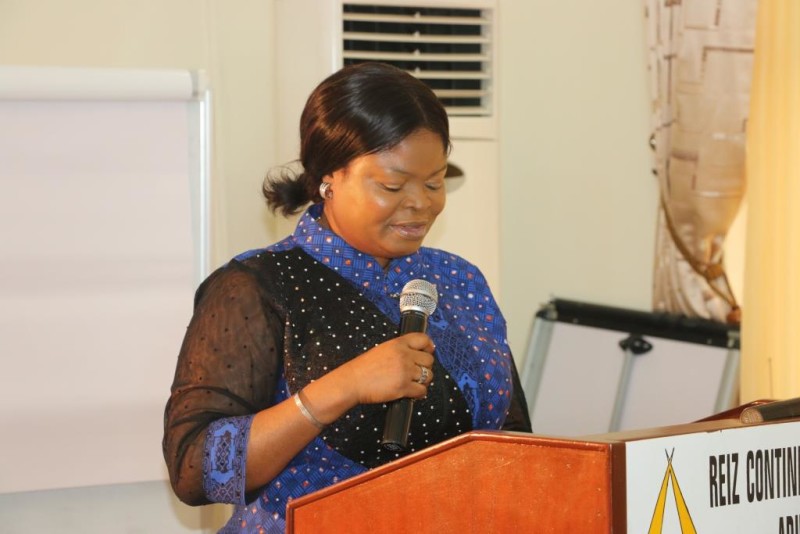The Senior Special Assistant to the President on Sustainable Development Goals (SSAP-SDGs), Princess Adejoke Orelope-Adefulire, has stated that the Federal Government is reviewing Nigeria’s implementation of the just concluded Millennium Development Goals (MDGs) in a bid to ensure a proper, accelerated and efficient implementation of the Sustainable Development Goals (SDGs).

Princess Orelope-Adefulire, who stated this recently in Abuja at a forum on the Implementation of SDGs in Nigeria, added that her office is also taking steps to come up with an achievable work plan to domesticate and adopt the SDGs into Nigeria’s national development plans as well as identifying Nigeria’s key areas for priority attention.
“This retreat on the Implementation of the SDGs in Nigeria is therefore very timely as the forum also offers us a unique opportunity to examine what has worked and what has not worked well and proceed to develop common strategy for the domestication, mainstreaming and implementation of the SDGs into our National Planning process,” the SSAP noted.
The presidential aide re-iterated that Nigeria has made appreciable progress in the implementation of the MDGs, particularly in the area of Universal Primary Enrolment, achieving gender parity in Education, reducing the spread of HIV and AIDs, reducing maternal death, and halving the percentage of people living in absolute hunger for which the country received recognition from the Food and Agricultural Organisation (FAO). She also noted that the implementation of incentive based interventions such as the Conditional Grant Scheme (CGS) has been key.
She however maintained that “despite this appreciative progress, some of the MDGs targets were not met due to challenges in the areas of poverty, insecurity, social inequality and youth unemployment. A situation she blamed on Nigeria’s late commencement of the MDGs implementation.
While highlighting the disproportionate successes recorded in the implementation of the MDGs across states, local governments and geo-political zones, Princess Orelope-Adefulire noted that the implementation of the MDGs in many states of the federation was hampered by factors such as poor funding, low participation, ownership and sustainability.
Against this backdrop, she concluded that the implementation of the MDGs in Nigeria and indeed the rest of Africa remains one unfinished business that needs to be rolled over to the SDGs.
She said: “As we kick-start the implementations of the SDGs, therefore we should re-examine and institutionalise some best practices as we all know that SDGs are aspirational, integrated, transformative, actionable and universal, targeting both developed and developing countries. The MDGs helped in improving the economic and social conditions in several nations of the world, particularly in Africa. However, the glitch in the MDGs was that, it focused majorly on the government of each nation.
“This time, the SDGs challenge both the government, private organisations and institutions, civil society and individuals to participate in making the world a better place. It is expected that collaborative efforts geared towards a similar agenda by all the bodies will have a greater impact to the society.”
In laying foundation for the effective implementation of the SDGs, the SSAP-SDGs stated that her office would be creating public awareness on the role of all stakeholders, highlighting the gaps in select sectors and propose sustainable strategies and models that can be adopted with emphasis on the role of the private sector. They will also identify priority issues and develop an actionable framework for implementation of the reforms in the select sectors, she added.
In his presentation, United Nations representative, Ojiji Odhiambo, stated that the foundation of the SDGs is based on six pillars such as People, Prosperity, Planet, Justice, Partnership and Dignity in a world that is guided by existing obligations under the international law and respect for human rights. He said Nigeria would work on its prioritised items according to the needs of each state of the federation.
The programme was jointly organised by Department for International Development (DFID) and Office of the Senior Special Assistant to the President (SDGs).
